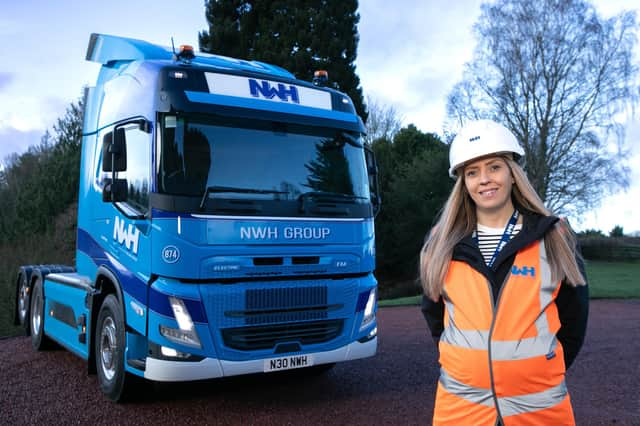Midlothian recycling business rolls out giant electric lorry as part of net-zero plan


NWH Group, the Midlothian-based recycling business, is going green after taking delivery of its first fully electric articulated lorry.
Bosses said the move marked a “significant step forward” in the company’s mission to reduce its carbon footprint and environmental impact. It has already reported a 91 per cent reduction in on-site fuel usage by transitioning to alternative sources, coupled with a 63 per cent reduction in the carbon footprint of its fleet through the adoption of electric vehicles.
Advertisement
Hide AdAdvertisement
Hide AdBuilding on this success, Dalkeith-headquartered NWH, which serves the whole of Scotland and north-east England from ten sites, has embarked on the next phase of its sustainability journey by initiating the transition of its heavy goods vehicles (HGVs) to fully electric alternatives. The acquisition of the Volvo artic lorry marks the first step in this process.
The new vehicle is said to represent “the epitome of cutting-edge technology and innovation in the transportation industry”. It is seen as offering a viable and eco-friendly alternative to traditional diesel-powered trucks.
NWH director Nicola Williams said: “At the NWH Group, sustainability is not just a goal; it’s a fundamental value that drives every aspect of our operations. With the launch of our first fully electric artic vehicle from Volvo, we are reaffirming our commitment to sustainable practices and taking concrete steps towards achieving our vision of a net-zero future. We are dedicated to sustainability and environmental stewardship. With a steadfast commitment to reducing our carbon footprint, the company is at the forefront of driving positive change in the waste management industry.”
Comments
Want to join the conversation? Please or to comment on this article.